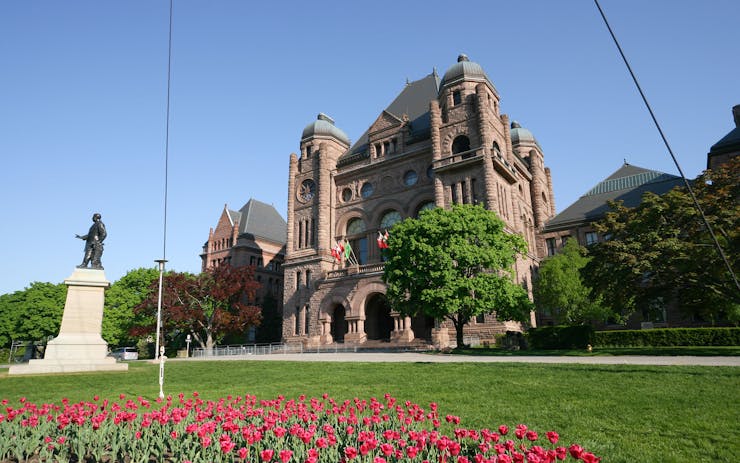Last week, the Government of Ontario quietly passed amendments to the province’s cannabis law that were instituted in response to a “loophole” that allowed dispensaries to remain open by claiming that someone was living on-premises and using the property as a residence.
The change was contained in an otherwise-unrelated government bill that was meant to address housing concerns in the province.Join the Leafly Canada CommunityThe Cannabis Control Act, passed in 2018, allowed enforcement officials to issue closure orders that enabled them to immediately close down any establishment in relation to a person’s cannabis offences.
That power has seen police and bylaw officials across Ontario shut down unlawful dispensaries and issue closure notices since the Act took effect. But because an exception contained in the law applies to residences, some dispensaries were reported to have put beds on their premises and claimed umbrage under this exception, thwarting closure orders and prompting the invalidation of prior closure notices.
In addition, the government made it a specific offence to enter or attempt to enter a premises that is subject to a closure order. Officers can now charge individuals with violating that order by entering the place, something that wasn’t possible before.
There’s also one amendment that has seen even less attention. Individuals convicted provincially of unlawful selling or distribution of cannabis now face mandatory minimum fines.
The mandatory fine also applies to landlords permitting illegal cannabis sales on their property. Individuals will be liable to pay at least $10,000 on the first conviction and at least $5,000 upon each further conviction. The law had already imposed mandatory minimum fines on corporations.
That means that illegal cannabis dealers and budtenders caught selling cannabis at illegal stores will face the added burden of a mandatory minimum fine. This, like the other amendment, were instituted in order to further deter the illegal sale of cannabis. The province has so far licensed 25 legal shops and has also formed a cannabis enforcement task force that has been assisting local police departments in their investigation and closure of unlawful dispensaries.





